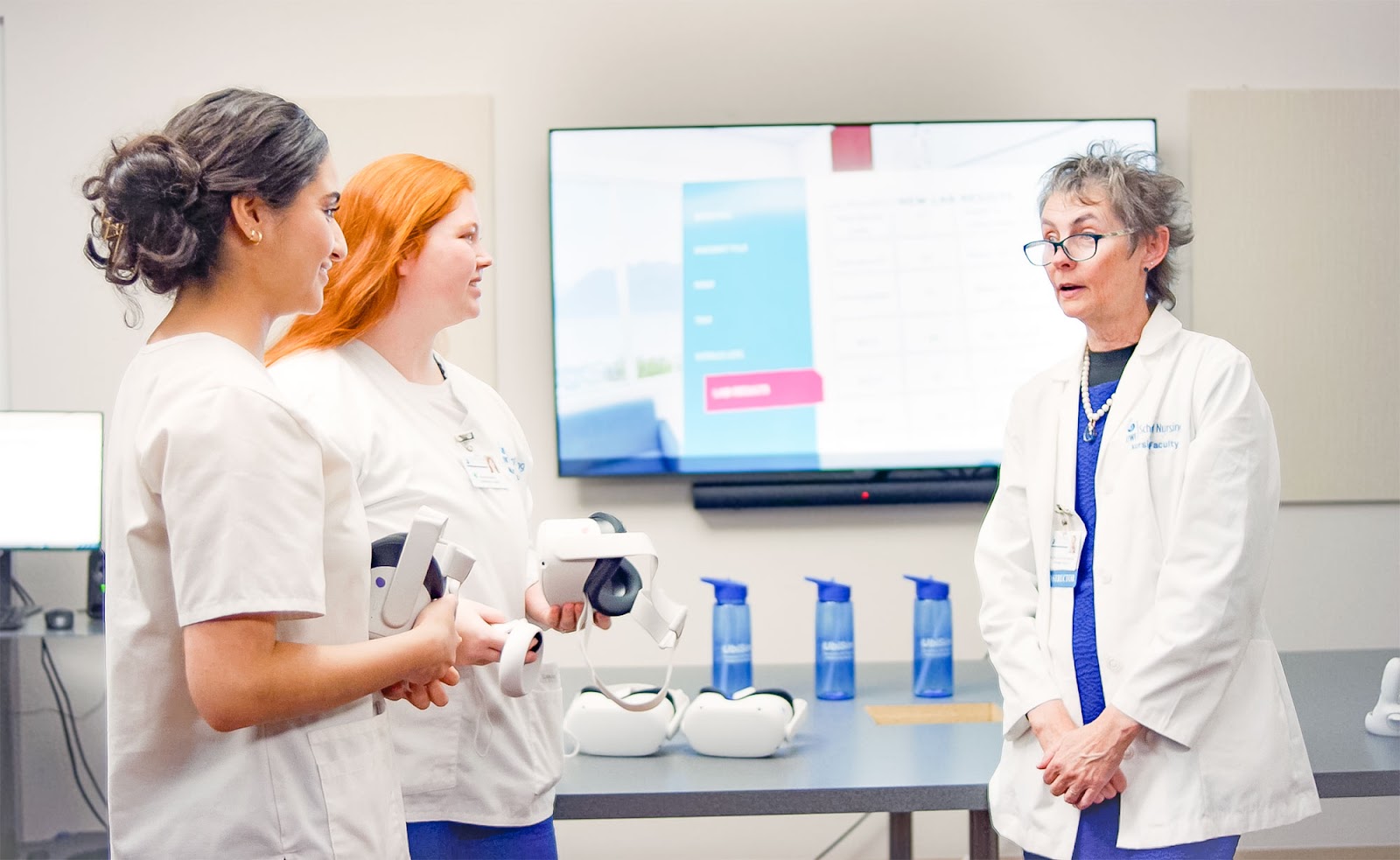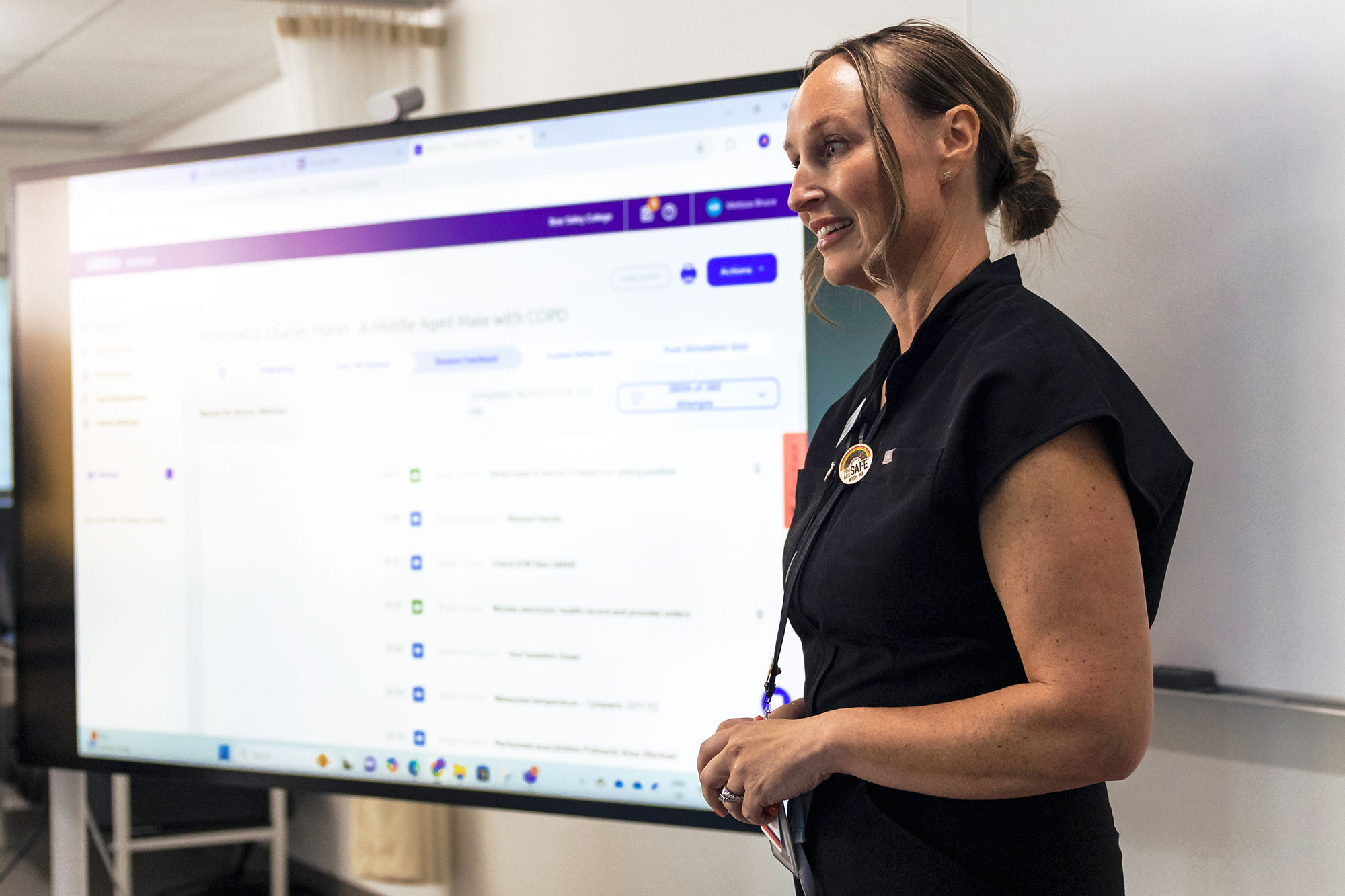Guide to the HRSA NEPQR Grant for Nurse Educators Looking to Implement Virtual Reality

Table of Contents
Name of the heading
1- Start your table with the syntax {start-table}
2 - Add an H3 Heading to create a new column (this will be the column title)
3 - List cells as bullet points in a List element
4 - End your table with the syntax {end-table}
If you’re a nurse educator looking for resources to bring immersive virtual reality to your institution, you may be eligible for grant funding through HRSA NEPQR-PRNP.
The Health Resources and Services Administration (HRSA) has a program, the Nurse Education, Practice, Quality, and Retention (NEPQR) Pathway to Registered Nurse Program (PRNP), aiming to develop or expand LPN/LVN-to-RN Bridge Programs and employment of clinical nurse faculty.
Who can apply for this program? Accredited nursing schools that provide bachelor's and associate’s nursing degrees, healthcare facilities, and educational institutions with a passion for advancing nursing education and practice.
NEPQR provides funding through experiential learning opportunities, including the use of simulation-based technology such as virtual reality. Funding should expand the capacity of nurses to advance the health of patients, families, and communities in rural or medically underserved areas experiencing economic, geographical, or health challenges.
Understanding the HRSA NEPQR Grant
If you're dreaming of integrating VR into your curriculum, NEPQR is your launchpad.
The Licensed Practical Nurse/Licensed Vocational Nurse (LPN/LVN) to Registered Nurse (RN) program track can be either an LPN/LVN-to-associate degree in Nursing or LPN/LVN-to-BSN. This program aims to create a pathway from academic training to clinical practice by creating and implementing LPN/LVN-to-RN Bridge Programs and employing Clinical Nurse Faculty.
The ceiling amount is up to $1 million each year for a total of four years.
In 2023, the application was released on February 27th and closed two months later. It’s anticipated this year that the grant will open around the same time.
Leveraging the HRSA Grant for VR Implementation
Are you thinking about bringing VR into your nursing program with the help of the HRSA NEPQR grant? Here's how to make your case:
- Set Clear Goals: Start by mapping out exactly how VR technology will elevate your program. Make sure your vision aligns with NEPQR's aim to improve nursing education and practice.
- Craft Your Plan: Outline your strategy for implementing VR. This includes selecting the right software, getting the necessary equipment, and ensuring your faculty are on board and ready to guide students through this new learning landscape.
- Write a Winning Proposal: Convince HRSA by highlighting the tangible benefits of VR in nursing education. Use research, case studies, and real success stories to show how VR can transform learning outcomes.
- Manage Your Budget Wisely: Show HRSA how you'll use their funds effectively. This means budgeting for equipment, training, and ongoing support, ensuring every dollar goes towards maximizing the impact of VR in your program.
The Importance of Virtual Reality in Nursing Education
Traditional methods have their place, but the challenges of preparing students for the complex, high-stakes world of healthcare demand more.
The magic of VR in nursing education is its ability to transform learning. Students can practice their skills, from routine procedures to handling emotional emergency situations, in a setting that feels real yet is completely controlled and safe. This hands-on approach leads to deeper engagement, better knowledge retention, and, ultimately, more competent and confident nursing professionals.
And it's not just theory. Institutions that have embraced VR report remarkable outcomes: students are more prepared, more confident, and better skilled when they step into real clinical settings.
UbiSim Use Case
UbiSim is a VR platform dedicated entirely to nursing education. Created by nurses and aligned with industry standards, the platform helps prepare students for the Next Generation NCLEX by building clinical judgment and reasoning skills.
Flavia McCarthy, Regional Director of Simulation & Skills at the School of Health Professions at National University uses UbiSim on an HRSA grant at her institution. She’s working with students from disadvantaged backgrounds with the promise that those students will go out and help others when they’ve graduated.
Want to learn more about the effectiveness of UbiSim’s nursing VR platform? Check out this case study featuring research done by Niagara College.
Final Thoughts
The HRSA NEPQR grant is more than just funding; it's a vote of confidence in the power of innovation to advance nursing education. With technologies like VR, we're not just preparing nursing students for the future; we're actively shaping what that future looks like. For educators and institutions ready to take the plunge, the NEPQR grant offers a golden opportunity to enhance their programs, making learning more engaging, effective, and exciting.
Resources:
Learn more about UbiSim by requesting a demo.
FAQs
Heading 1
Heading 2
Heading 3
Heading 4
Heading 5
Heading 6
Lorem ipsum dolor sit amet, consectetur adipiscing elit, sed do eiusmod tempor incididunt ut labore et dolore magna aliqua. Ut enim ad minim veniam, quis nostrud exercitation ullamco laboris nisi ut aliquip ex ea commodo consequat. Duis aute irure dolor in reprehenderit in voluptate velit esse cillum dolore eu fugiat nulla pariatur.
Block quote
Ordered list
- Item 1
- Item 2
- Item 3
Unordered list
- Item A
- Item B
- Item C
Bold text
Emphasis
Superscript
Subscript
Explore more

From 30 Minutes to 3: How AI Enhanced Analytics Transforms Debriefing Preparation
AI Enhanced Analytics: Scenario Performance Data now available in UbiSim's Version 1.19
.jpg)
Behind the Scenes: How We Brought Incisions & Dressings to Life in VR
How the UbiSim team built a VR system displaying 300+ distinct incision states—balancing clinical accuracy, technical constraints, and nursing education needs.
.jpg)
Step Inside the Room of Errors: Playful Exploration, Serious Skills
Learn how UbiSim's Room of Errors transforms nurse training through investigative play. Students spot hidden safety risks and build situational awareness.



